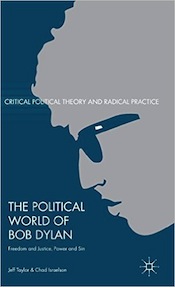This fall, I’m hosting the Iowa Conference on Presidential Politics. I’m professor of Political Science at Dordt College, a liberal arts school in northwest Iowa. I want to invite CounterPunch readers to participate in the conference, which will be held October 29-31, 2015.
ICPP will be a national, cross-disciplinary, inaugural meeting of scholars and activists focusing on U.S. presidential elections and presidential power. All are welcome—professors and instructors, independent scholars and interested citizens, graduate students and undergraduates.
We will be utilizing Iowa’s unique status as the first-in-the-nation state in the presidential selection process. We plan to attract more than one presidential candidate to speak at our conference since it will be timed to coincide with the Iowa caucuses.
The conference will feature three distinguished historians and political scientists as keynote speakers: Andrew Bacevich of Boston University, Robert Johnston of University of Illinois at Chicago, and Amy Black of Wheaton College.
Bacevich is a professor emeritus of History and International Relations. His speech will focus on the presidency and foreign policy. Johnston is a historian who specializes in the Progressive Era. His speech will focus on the growth of presidential power. Black is a political scientist who specializes in American Politics. Her speech will focus on religion and presidential elections.
See the ICPP website for details about featured speakers, breakout sessions, lodging and travel, conference registration, and paper proposal.
When scholars in my discipline, Political Science, deal with U.S. elections, many do so using statistical methods and rational models in an attempt to be more scientific. Such approaches  can have utility but they run the risk of focusing on the mechanics of politics without seeing the meaning of politics. It’s the old problem of not seeing the forest for the trees. The forest—the overall pattern—involves intangible, unquantifiable, human values such as ambition, fear, and hope. It also involves history and contemporary context.
can have utility but they run the risk of focusing on the mechanics of politics without seeing the meaning of politics. It’s the old problem of not seeing the forest for the trees. The forest—the overall pattern—involves intangible, unquantifiable, human values such as ambition, fear, and hope. It also involves history and contemporary context.
Most importantly, the heart of politics is power. Power needs to be held in check because power holds a great attraction for humans. The acquisition of power is addictive. Once gained, it is rarely given up voluntarily. It is axiomatic that power tends to corrupt. Centralized power, both private and public, is dangerous. As the seat of coercive power, government has great potential for both good and evil. The foundational question for political philosophy is “Who rules?”
A variety of methodologies, including statistical, are welcome at the Iowa Conference on Presidential Politics. One reason I wanted to create such a conference was to bridge the gap between theory and practice. Politicians do not read scholarly journals. Few voters and activists read them either. Politics is not just something that we study and write about. It’s something that we do. Papers informed by qualitative research, normative political thought, historical accounts, and anecdotal case studies are welcome at ICPP.
The wording for the conference breakout sessions includes normative, ethical presuppositions. We don’t have to all agree on which sociopolitical values are best but we ought to recognize their existence. ICPP will be a place where questions of elitism, plutocracy, empire, and militarism are openly addressed. The bipartisan consensus of power-and-privilege usually obscures the most important matters in favor of cult of personality, media-generated distractions, who’s-up-who’s-down polling, and demos-dividing secondary issues. We hope to go deeper.
I am interested in not only who wins presidential elections but why they win and what they do with their resulting power. In the end, things like truth and peace, human scale and social justice, ideological thought and grassroots action, institutional traits and historical trajectories, are more important than which Democrat or which Republican rides a quadrennial wave of cash and rhetoric into the Oval Office. An example of this approach—highlighted in CounterPunch earlier this year—is William Grover and Joseph Peschek’s book The Unsustainable Presidency.
All three keynote speakers are known for their ability to see past conventional wisdom and glib explanations. Bacevich, for example, has been a prominent critic of not only the Iraq War but also of the entire foreign policy tradition of the past century (what he calls “Washington Rules”). A West Point grad and former U.S. Army officer, his books include American Empire and The New American Militarism.
The Boston Globe recently published Bacevich’s thoughts on Democratic presidential candidate Jim Webb and the vacuous nature of foreign policy discussion on the campaign trail. Bacevich’s take on Webb can be contrasted with recent critiques of Bernie Sanders published by CounterPunch—for example here and here. In some ways, Webb is more of a maverick than Sanders, who seems to be in the foreign policy tradition of Hubert Humphrey and benevolent global imperialism. It would be interesting to have original research on such comparisons presented at ICPP.
At least two breakout sessions will deal specifically with the Republicans and the Democrats because the next occupant of the White House will almost certainly belong to one of the two major parties. But the existence of minor parties is important and papers dealing with presidential politics in relation to the Green, Libertarian, Constitution, or other third parties are welcome.
Please share this information with friends and colleagues who may be interested in attending the conference.